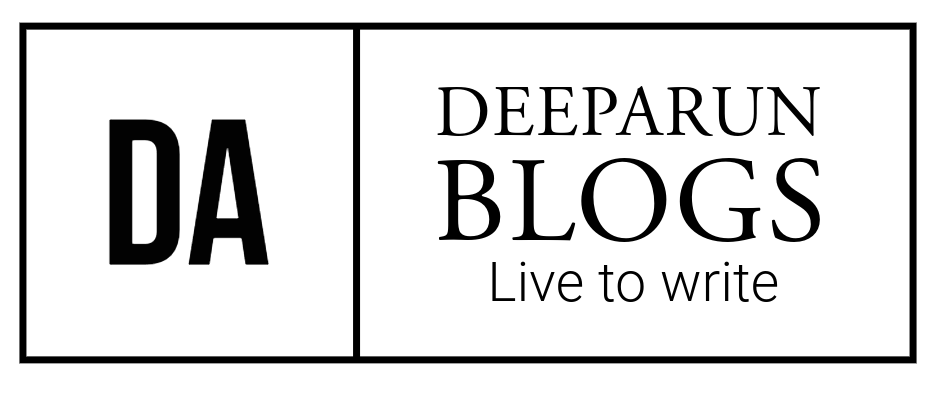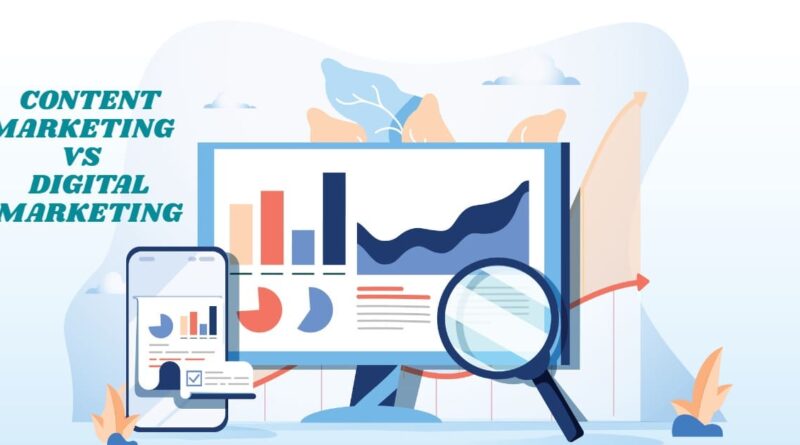Digital Marketing vs. Content Marketing: Understanding the Key Differences
In today’s digital era, businesses of all sizes are increasingly turning to online platforms to reach their target audience and achieve their marketing goals. However, when it comes to online marketing, there are often misconceptions about the terms “digital marketing” and “content marketing.” While they are interrelated, they are distinct approaches with specific objectives. So understanding the differences between Digital Marketing vs. Content Marketing.
What is Digital Marketing?
Digital marketing encompasses a broad range of online marketing strategies aimed at promoting a brand, product, or service using digital technologies. It involves various tactics, such as:
- Search Engine Optimization (SEO): Enhancing a website’s visibility and ranking in search engine results pages (SERPs) to attract organic traffic.
- Pay-per-click (PPC) advertising: Running ads on search engines and other online platforms, where advertisers pay a fee each time a user clicks on their ad.
- Social media marketing: Utilizing social media platforms to connect with potential customers, build brand awareness, and drive traffic to a website.
- Email marketing: Sending targeted emails to subscribers to nurture leads, promote products, and drive conversions.
What is Content Marketing?
Content marketing, a subset of digital marketing, focuses on creating, distributing, and sharing valuable and relevant content to attract and engage a clearly defined audience. It aims to establish thought leadership, build relationships, and ultimately drive profitable customer action.
Content marketing strategies include:
- Blogging: Creating informative and engaging blog posts that attract organic traffic and establish expertise.
- Social media content: Sharing engaging content on social media platforms to increase brand awareness, drive engagement, and generate leads.
- Video marketing: Producing high-quality videos that educate, entertain, and inspire viewers.
- Infographics: Creating visually appealing infographics to present complex information in an easily digestible format.
- Email newsletters: Curating and distributing newsletters that deliver valuable content and nurture relationships with subscribers.
Key Differences between Digital Marketing and Content Marketing
While both digital marketing and content marketing are essential for online success, there are key distinctions between the two approaches:
Focus: Digital marketing encompasses a broader range of strategies, including paid advertising and social media engagement, while content marketing focuses on creating and sharing valuable content.
Objectives: Digital marketing’s primary goal is to drive immediate conversions and sales, while content marketing aims to attract and nurture leads, build relationships, and establish brand authority.
Timescale: Digital marketing campaigns can yield quicker results, while content marketing is a long-term investment that builds momentum over time.
Measurement: Digital marketing’s effectiveness is often measured by metrics like clicks, conversions, and sales, while content marketing’s success is assessed by metrics like engagement, lead generation, and brand awareness.
Synergy of Digital Marketing and Content Marketing
Digital marketing and content marketing are not mutually exclusive; they work in synergy to achieve comprehensive online marketing success.
- Content marketing provides valuable content that supports digital marketing campaigns, making them more effective and engaging.
- Digital marketing channels, such as social media and email, distribute content to a wider audience, amplifying its reach and impact.
In conclusion, digital marketing and content marketing are both essential components of an effective online marketing strategy. Digital marketing provides a wide range of tactics to reach and engage target audiences, while content marketing establishes thought leadership, builds relationships, and drives long-term growth. By understanding the key differences between these two approaches and leveraging their synergistic potential, businesses can optimize their online presence and achieve their marketing goals.
FAQ:
1. What are the main goals of Digital Marketing?
The primary goals of digital marketing are to increase brand awareness, drive traffic to websites, generate leads, and ultimately, boost sales. It utilizes various online channels and tactics to achieve these objectives.
2. What are the main goals of Content Marketing?
Content marketing aims to build trust and credibility with the audience by providing valuable information. It focuses on educating, entertaining, or inspiring the audience rather than directly promoting a product or service.
3. How do SEO and Social Media fit into Digital Marketing and Content Marketing?
SEO and Social Media are integral parts of both digital marketing and content marketing. In digital marketing, they are used to enhance online visibility and reach the target audience. In content marketing, they serve as distribution channels for the content created.
4. Can Content Marketing exist without Digital Marketing?
While content marketing can exist without a broader digital marketing strategy, its effectiveness is often limited. Digital marketing provides the necessary channels and tools to amplify the reach of content and connect with a wider audience.
5. Which one is more focused on storytelling – Digital Marketing or Content Marketing?
Content marketing is more focused on storytelling. It emphasizes creating narratives and engaging stories to connect with the audience emotionally. Digital marketing, on the other hand, may use storytelling but is not exclusively centered around it.
6. How do analytics play a role in both Digital Marketing and Content Marketing?
Analytics are crucial in both digital marketing and content marketing for tracking performance, understanding audience behavior, and optimizing strategies. They help in measuring the effectiveness of campaigns and making data-driven decisions.
7. Can Digital Marketing and Content Marketing be used together?
Absolutely. In fact, they complement each other. Content marketing can be a vital component of a digital marketing strategy, providing valuable material for various online channels. Integrating both ensures a holistic approach to online marketing.
8. Which is more immediate – Digital Marketing VS. Content Marketing?
Digital marketing, particularly through channels like paid advertising, can yield more immediate results in terms of visibility and traffic. Content marketing, being a long-term strategy, often takes time to build a loyal audience and see significant results.
9. How do you decide which approach is best for a business?
The choice between digital marketing and content marketing depends on the specific goals of the business. Ideally, a comprehensive digital marketing strategy should incorporate content marketing to leverage the benefits of both approaches.




